RECOMMENDATIONS [in addition to Optimal Competence]
1. Prefigurative Language Games which foster the Flex-abilities of “Unused Potentiality for Change”
A) A co-evolution of Sex as Celebration version Sex as a Sacrament {21}: An imperfect distinction of this kind “made common” might throw light on certain conflicts. Consider the rage of those who are perhaps young and not wanting its meaning decided for them, those who are perhaps struggling with daunting circumstances and not in a position affording the flex-ability to “celebrate”, or those who would simply prefer not to treat sex as other than a sacrament, only to find ubiquitous the celebrating debauchery of their would-be sacrament. B) Voluntary Secular Language Games of Single Sex Partner for Life Hopefuls. Public Recognition for the Legitimacy of activity chosen conjunction of negations (exclusive rights) – e.g., patterns, enclaves, signifcations, language games, or institutions of single sex partner for life hopefuls outside the constraints of religion might alleviate the stress of celebrative tropism in free society. This is not at all impractical. All that has to happen is for persons in public circumstances to mention this as an option.
2. Concerted attention to issues of physical appearance and bodily make-up. Problems of undue privilege with regard to consensually attributed “beauty” and “physical prowess”, and more importantly, abuses with regard to consensually attributed “unattractiveness” should be discussed more actively. It is probably too burdensome for persons, in the latter position especially, to make the case without well promulgated support. Perhaps this difficulty provides one explanation as to why issues of this kind, e.g., “looksism”, have incorrectly fallen under the rubric of “sexism” – As if females are not culpable of unjust physical discrimination.
3. Equitable trade-off of forces: As females justifiably need more Self Actualization there should be greater challenges to their Contextual Forces so that they might have a better appreciation of what of what they might be giving way when making decisions of Implicature. Conversely, and preferably as an emphasis, males ought to be granted easier means of Contextual Force so that they might have a greater appreciation of what they might be giving away when making decisions of Implicature. {22}
4. Distinguishing “Stories Lived from Stories Told”: When talking in terms of Stories Told, its third person panoramas, there will undoubtedly be cases in Stories Lived in everyday going on, of persons who are disadvantaged being sanctioned as if they are advantaged, and conversely, persons who are advantaged only to be compensated for Stories Told of their disadvantage. In this treatise application, males disadvantaged in Stories Lived, will be punished for Stories Told of their privilege; this will occur at the same time that females and males designated as underprivileged in Stories Told, who are actually quite fortunate in Stories Lived (perhaps even abusive to the designated “privileged” male), disingenuously use The Story Told to exalt over the “hubris” of the supposedly privileged male.
[2018, though I’d articulated this thoroughly at the time, it wasn’t forefronted in this 1993 version that I’m working from: Male Self Actualization, achievement, power in position is sometimes and in part a result of Freudean/Nietszchean privation and deprivation of basic levels of Maslow’s heirarchy, not only a result of fulfillment of basic levels – as feminists have been saying – thus some will be punished for achieving despite privation, for their “oppressive advantage!”
Conversely, females will be better positioned to advocate for their interests in achievement and influence because their basic levels are more readily satisfied.
The YKW in particular will pander to the female position, saying that women are “oppressed across the board (ignoring basic need fulfillment) while also pandering to the propensity to incite the continued deprivation of basic male flex-abilities – being “a baby”, “not a man”, “get on with your life”, etc.
On the other hand, the propensity of the sheer liberal and liberation paradigm will put some females into power, and gate keeping positions, where they are too liberal of boundaries as their basic needs have been fulfilled a bit too easily, overprotected.
And males will be more insane, aggressive, overcompensating and violating of other’s borders, having been deprived and driven as such].
Pervading American society are three Stories Told, which, in particular, seem to exercise strong enough contextual force to keep in place a stable hierarchy, diverting from and making challenge to the sort of problem mentioned above difficult: {23} 1. The Male “Permanent Puerile Initiate” 2. The Female “Panacea” 3. “Male Supremacy” A) The CMM Quaternary System: By breaking discussion of Cartesian individuation and gender relations into an internally related quaternary system, a way of talking is provided which is 1) simple enough to “make common” acknowledgement that not all males ought to be classified among a “patriarchal elite” deserving to be brought down; in connection with that, that not all females and designated oppressed males ought to be considered underprivileged (if that sounds simplistic, it should; it’s addressing embarrassingly simplistic and superficial arguments). This can alleviate the rage of those who are punished a second time for the Story Told – as revision of these stories would entail accountability for co-construction of the hierarchical male position 2) complex enough for the multiplicity of its interfaces to make its use alluring, while overly simple stereotyping is made virtually impossible. In all it provides a way of talking which can include a multitude of views without minimizing the integrity of their prospective agendas.
B) A platform providing articulate critique of females: “Made common” ways of talk, entering among American Stories Told, which provide young males compelled to appropriate language through popular culture for their poor interpersonal conversational resources in Stories Lived, with a counteractive to overly ameliorative Stories Told of females (“Panacea”) are a necessary predation in an ecology of discourse. Disillusionment with contrasts between the Story Lived and Stories Told of panacea, permanent puerile initiate, and male supremacy may account for many of the Story’s hypertrophied extants (reflexive reversal of quest to Self Actualization and socially recognized esteem to social aberration instead) thereof of brutality. These Stories Told create an overwhelming labyrinth of all too readily available excuses. Inasmuch, these torrents of rhetoric make the initial abuse of the male and the ignoring of that part of the process, seem deserved. It might not be intolerable for the inarticulate male to find females as they can be within the Story Lived if there were better preparation through closer interpretation and critique of Stories Told. Within this grammar (see Burke, 10; 65) (not a placation of hard earned ideas, but such a thing as articulate critique (e.g., feminism might usefully be looked-upon as “inverted guilt”; another, e.g., the accusation of “homosexuality”, which may incite inarticulate young males to overcompensate, might be assuaged with a notion of homosexuals being less competition in the realm of sex {24}), anxiety which abets importunate vying for females may be moved to a better order of premises. He would have a permanent direction of growth to guard against the arbitrariness of her pejorative altercastings. He need not put hope in females to the degree of being unskeptical of negative customs and habits, or to the degree of unconsciously setting them above reasonable moral and ethical [‘ethnical’ was a happy typo] standards. The sought for result would be a more remarkable interaction and a more qualified participant.
5. As Cultures evolve in ecological circumstances through millennia, the Traditional notion that cultures are naive (though they can be) needs more critique. More Accountability to and of cultures than is currently afforded should be Legitimized.
6. Undoing Dewey’s notion of democracy as a way of life (it shatters and destabilizes necessary patterns) and placing persons first and making democracy the most important tool in their assistance. Returning money to its ancillary function as an abstract guideline for exchange. Socialism. Ecology. Two children. Hermeneutic turn.
7. CMM’s discussion of the importance of “Voice” in “Post Enlightenment Ethics”
CONTENT FOOTNOTES
{1} Of primary example, there are, of course, many women who favor “male morality” and men more disposed to “female morality”, etc.
{2} Language Games are fundamentally actions. The ubiquity of rules guides immediacy of use.
{3} Socialization, Being, Selhood and Self Actualization. The perjorative connotations of these static monadic cultural terms will only be adumbrated. Socialization as a science has been looked upon as a monolithic telos, the non-acquisition of which meant we were immature or physically deformed, and not perhaps constituted for other flex-able preferences. We were expected to transcend nature in genocidal collusion, as if our capacity for self trancendence to social criteria should be unlimited. Being, as I see it, the obfuscated agenda of the hippie-freak movement (witness semiotics such as Haight Ashbury “Be-ins”), was most acutely about the right of the male of the species “to Be” (and to be weird, thank goodness). Unfortunately, it became entangled with Heidegger’s rigid and anti-social reification wherein Being was to be pursued to its ownmost guilty, gloriously violent death. Selhood sounded like such a fundamental human right that perhaps many a “hard hat” fought mightily to reconstruct what could amount to an everyday kind of slavery. And Friedan, 1963, took Maslow’s story of “Self Actualization” to be imperative to the liberation of women. No wonder feminists actualized the nightmare of no alternatives by practicing language games every bit as prone to self righteousness and imperviousness as those of Neo Traditional women.
{4} If it would make things easier for the reader, just think of “grammars” as rules, better, “rule-abilities.” These rule-abilities provide logics of meaning and action. Persons are simultaneously or variably enmeshed in these logics which have different entailments. These rule-abilities are internally related by their “ruleness”, or their common nature as rules. Because persons are themselves comprised of these rule-abilities, they are able to use them immediately, at least in some crude fashion. That is not to say that these Immanent Constitutive Rule-abilities are not Mutable and subject to various interpretations, affordance and constraint as Regulated through the logical force of Open Ended Hierarchicization. Language then, is socially constructed semiotics of “depth grammars” – immanently available rules (these embedded rules are also, of course, socially constructed).
{5} “Flex-ability” is approximately synonymous with Alternative Range of Functional Autonomy [ARF] and the Deontic Operator, “Legitimacy.”
{6} Being/Selfhood are Not too passively defined; prerequisite relations to these processes are amplified for the purpose of integrating the substance/context paradox, especially during early stages of “individuation.”
Of course, you, young man, have the right to reject a woman on the basis of the men that she has dated.
{7} Thus, for example, through Self Actualization might remain the most conspicuous, it is no longer simply the finest achievement. With the reflexive effects of modernity, Actualization’s criteria are transient and unpredictable. In absence the stable criteria of traditional society, Actualization’s need for Socialization, Selfhood, and especially for Being [CR] Reflexive Need for Prefigurative Contextual force are increased. Without those incorporations the modernist paradox makes Actualization prone to reflexive reversal or overcompensation to Social Aberration; i.e., to be Actualized according to Modernity is to be especially different – the modernist paradox (14; 51a: “Be different so you can fit in”). But again, it is not just Self Actualization which is dangerous. In tacit reply to Heidegger’s “ownmost being toward death”, Bateson observed that “nature rarely works within lethal variables.” Take that to implicate that any of these four notions quantified can be toxic.
{8} This tradition Elaborated the gender division into two Positions of Advantageous Flex-abilities.
In this contemporary language’s abbreviated way, this would read like two different “one-up” positions (and corresponding “one-down” positions), one with regard to the security of human needs, the other with regard to quests of achievement. The individual in position of wider flex-abilities has more affordance and Legitimacy with regard to their agency (in other words, a wider Alternative Range of Functional Autonomy (ARF), the position of narrower flex-abilities is subject to more Constraint, Prohibition and Obligation to their agency (narrower ARF).
To avoid ordinary difficulties of gender comparison, unfortunately, this article feigns a quantitative scale. It postulates that identical gradients of “physical, emotional and intellectual” circumstances would produce a story of occidental females being (in “ordinary language!”) “one up”, i.e., having a position with greater flex-abilities (affordances, legitimacy, wider range of alternative acts) than do males in the significant episodes of initial interaction and partner selection. Problems of operationalizing and concluding from this postulate are appreciable – beginning with meaning clusters of its words and proceeding through issues of time, etc. This trichotomy may be impossible or unnecessary in determining gender positions of greater flex-abilities re: a particular situation. Presumably, positions of greater affordance and constraint might reverse or converge at certain gradients, and at certain junctures on the Life Span; they probably would change in moment and episode too, but the concern here is to characterize Cultural Patterns.
{9} “Didactic Incitement”: Perhaps the crux of didactic incitement is antagonism for not adopting a pure first person account; i.e., strong obligation of 1rst person accountability coupled with 2nd and 3rd person absolution (either through prohibition of accountability or legitimization of non-accountability). Imperviousness and tangential responding being instances of Taken For Granted (making them all the more important) E-text pure 1rst person procedure. This incitement can take the form of anything from: boot camp, to the ignominious bullying of Naven Ritual Rites of passage producing harsh, overcompensating males; to shrill indignation to trifling indifference (the metacommunacative belch) [Legitimacy is neither antithesis nor indifference]. It can take form in condescending “tact”, it can take form of “humble” intervention of an supposed “absolutionist.” It can hold logical force though sheer power of obligation/ prohibition – in which case the nature of the address (inciting and didactic) may be so intense that the addressee cannot tell whether they are acting as an agent, or whether they are acting in accordance with obligatory conformity; or, paradoxically, obligatory rebellion; it can divert into stories of “primary process” [DO Oblig.], “orientative response” [DO Uncert], it can captivate by flattering one’s capacity for resolve, or through its interestingness – its intellectual bedazzlement as new tfg’s can always be provoked.
This section perhaps separates matters too much. Further, this is not to suggest its constituents should always be as written here. The reader should consider the “Both/And” suggestion while reading this quaternary system. These are paradoxes, so options I, II, III, IV, can (and usually do), happen simultaneously (in different narratives or different “levels” – e.g., Alt, Ep, Autob, RC, CP) and can (and usually do) occur separately over protracted spans of time such that the dynamics of the loops are hard to discern. As G. Abeles, in her review of double bind analysis (57 p. 147) has observed, the investigator cannot parcel out factors and still have them work as they would, i.e., simultaneously and pervasively though time within the qualitative patterns of important relationships. “The double bind (we talk more in terms of loops here) is about background issues.” Any attempt to clarify them to the fore changes what the “victim” is attempting to do in their bind. They are having a difficult time protecting their resources/flex-abilities – the last thing they might want to do is clarify them to the fore. I.e., they might want to be able to take a relationship for granted. Nevertheless, in the qualitative setting of the loop, all attempts to [TFG RC] are subject to constant “figure ground reversals which prevent background issues from being background issues as their stability is continually put into question.”
In Bateson’s model, the “schizophrenic” is “punished for being punished.” I believe that this didactic cruelty and the Cartesian mechanism are instrumental in constructing and abetting the “phony and crooked disease of quantification”, of which he spoke. “As teachers are we wise?”
This is not a gender specific phenomenon. Indeed, it is harder to be a female from the standpoint of traditional (Kantian) morals, as more or happier opportunities exist to make mistakes. And as they are in a basic position of wider flex-abilities, at least on everyday levels, there are more or happier opportunities for females to exact this punishment for being punished. In this way, for example, males are made (constructed) “immoral” (giving females a wider Alternative Range of Functional Autonomy to exploit?) Note 23 retraces a charmed loop wherein, given that this is necessarily a just world (relatively to her), the suffering of the male proves his guilt and justifies more punishment (Scarry). The cycle perpetuates itself more as the disconfirmer has left herself susceptible to retaliation and must continue the disconfirmation with increased intensity (Lang).
Pontifications: “Deprive persons (metacommunication) the power to clarify, revise and integrate their premises and they will suffer for it” (D. Barnlund). “The road to hell can be paved with bad intentions as well” – “and it isn’t funny.” G. B. [Telos (“good intentions?”) separations constrain and therefore also abet competition and quantification; (subsequent to my initial writing of this treatise, Cucciari’s article in Ortner and Whitehead’s “Sexual Meanings” would lead me to add only this, which, should have been obvious)]. Though the scribe is not a Christian, the statement, “if you had known this, they ask for sympathy not sacrifice, you would not have punished the innocent”, is noble. K. Burke argued that we should seek a war so peaceful that it is more peaceful than what we now know as peace.” And he asked, “when is the teacher too harsh, the victory too easy?” ….“rather than being fulfilling, primitivism is ‘emptying”… “The Stoic acceptance was aimed at the transubstantiation of the excremental, in an attempt to proclaim even the repugnant aspects of existence essentially divine.” We should not construe a test for health with the means for its achievement. The sociobiologist David Barash contented, “scratch an altruist and watch them become a hypocrite.” It would seem, rather, that the altruist has just cause to be provisionally non-altruistic if their ability to carry on their good deeds are obstructed thus. See also Whitehead, 1933 p. 25 (63); human sacrifice and slavery are instances of religion aligning itself with the inherited brutality of instinctual behavior, which may happen too easily without the aid of speculation disentangled from current modes of behavior and conscious entertainment of ideas. Civilization is the advancement of persuasion over force.”
{10} Read “inescapable” as “profound and complex”, not absolutely inescapable and leaving no agency. It depends upon contextual force of the circumstance, the position of wider flex-ability, hegemony..
{11} As language games afford and constrain the course of human activity, to be tormented by non-accountability (e.g., the non-accountability of “objectivism”) does not necessarily represent feebleness of thought. This may provide one account for schizophrenic voices; elaborated still further; since they are without the median feedback of socialization and perceive themselves abused or guilty, schizophrenic voices may be pejorative speculation as to what they might be “doing wrong” to deserve such altercasting. It is extremely difficult to judge how things count from this position. The “schizophrenic” may have a profound and complex sense of exposure: as they are apparently having a difficult time protecting resources protecting resources, incompetence might be one means of achieving those ends. From the schizophrenic point of view, when what little agency (prefer talk of agency to change for that word’s causal, inhuman implications) they do have is moved into causality, for what little orientation they have, possibilities that they may well be entitled-to are being removed. This wish to preserve the possibility from fatalistic causality, concomitant with the ineloquence of the predicament has been interpreted as “grandiosity.” To be sure, the complex bundling of their talk is, of necessity, highly symbolic, and likely to be wanting to preserve possibility) would be in addition to the phenomenon discussed by Watzlawick, wherein the schizophrenic is divided between the fixation of wanting to maintain the accuracy of their disconfirmed perceptions versus their wish for relational assurance.
It is in fact this first option of withdrawal which produces the unwanted reaction of incontinence (1b) and hysteria. For in withdrawing to the extreme, the organic constitution counteracts, producing the unwanted bodily and hermeneutic reactions which betray even one’s own self.
As a lesson in didactic cruelty, it might read like: [Act] A Rape [C] Female has an orgasm [CR] Bodily pleasure [C] Hyseria [CR] Happiness [C] The victim goes on an anti-rape crusade [CR] Inspired by the rape’s lesson.
In that sounds perverse, it should. Yet that is the sort of logic which is being applied to males. And then people wonder why men are going insane and doing terrible things.
{12} For the purposes of Stories Told this alleviation of hypocrisy remains a useful idea. However, these moves taking for granted Traditional Teleology have much to do with the notoriously impervious notion of coherence, and paradoxically, by adding the furtive mechanism of provisionalization, the brutal relativism of the enlightenment legacy within Stories Lived. For relationality is liable to ignore the Aristotlian non-cognitive feel for qualitative balance between extremes.
{13} Context Force: Solicitation (Pandering?) and tolerated reticence not just from males; the contextual force of Autob. accommodates inquiry into its eloquence and influence (esp. Re: RC) recursively derived through other females and customary felicities, etc.
“Addressivity” (like the original notion of altercasting – Pearce, Cronen, Harris, 1981, p. 210) does represent a narrative improvement over the Lockeatinism of Cissna & Sieberg’s confirmation/disconfirmation research (Wilder & Weakland 1981, 254 – 282); but, for its theoria outlook neglecting the multi-interactive qualities of poesis and phronesis to these contexts it does not address the kinds of stability and changeable complexity of various, simultaneously functioning narrative narratives as attempted, but not yet thoroughly described by Johnson, Cronen & Lannamann 1982. See our revised notion of Altercasting in the synopsis. The notion of “shaping and crafting” of specificatory structures – rough language games proffered for refinement comes from Shotter (24 ibid.).
One can look upon female contextual force as, for example, being a contextual force over the species, or one can look at a group of secretaries exercising contextual force over employment candidates, etc.
With S. Freeman, I’ve adumbrated a way of talking about this wherein it might be said that, even nowadays, females tend to be without voice on Actualized levels, but on everyday levels of Being and Selfhood, they might often tend to be more articulate than males.
The interaction of these gender positions can provide an account for the social construction of the larger male hypothalamus and the more interfacing female corpus collossum.
This can also provide an account for the apparent injustice of the traditional “double standard.” As it is qualitatively and quantitatively easier for females to valence partners., she is, according to tradition, conducting herself as a bully if she is lewd or promiscuous. Against those who might argue that “there is nothing wrong with it”, one might reply that there can be a lot wrong with injustice; there can be a lot wrong with confirming bad men (i.e., those whose considerations view a relatively narrow arc of contingencies). Perhaps this can add a clue as to one narrative at work where prostitutes are targets of serial murder (this is not an endorsement of the murder of prostitutes!).
“They would call insolence good breeding, shamelessness courage, and extravagance good will” – Plato
{14} Self Assertion: For purposes of comparison, contrast Gilligan (26), in her discussion of “Mr. Right and Mr. Wrong” p. 61 where she equates Claire’s going out with Mr. Wrong as an act of non-communication and devoid of Self Assertion. This view would hold quite oppositely that Clair was communicating, demonstrating strong Self Assertion in taking recourse apart from any direct conversation with Mr. Right. Had she given Mr. Right a chance to talk about talk, the she would have been enacting more a “Self Transcendence” than “Self Assertion.”
Take note of the insensible if not brutal males that young females queue up for while blaming men for hierarchicization. This emphasis on “breaking the rules” might be looked upon as a kind of selection having particular bias toward narrow individualism; it may necessitate counter-rhetoric and perhaps forms of Prohibition at times – “the road to hell can be paved with bad intentions as well” … “and it isn’t funny” G.B.
Is it possible that females tend to select with a functional bias?, selecting males undaunted no matter how toxic the environment?, while males tend toward the subtle, formal, sensitive and cooperative? If so, whose bias do we prefer?
E.g., what is the confidence which females seem to so strongly Obligate good for? I observer Milan’s team of Boscolo & Cecchin interviewing an “anorectic family.” In my alternative hypothesis, the father was very decisive, “confident” (and this was apparently the quality which his wife most admired in him). He Obligated his daughters to either stay or leave home (but he did not care which); the anorectic daughter, starving herself to death, was apparently looking for a caring situation in which she could Legitimately stay or leave the home for new environs. One (in this case the father) cannot care much for Consequents, if one is going to be decisive or confident – this is an extremely counter intellectual valuation.
{15} Cursory Pejorative Conclusions: This is just a handle, really. This position is not so much prone to cursory, i.e., quick and sloppy conclusions as it is to conclusions which are quick and overly precise. The Addressive position of flex-abilities basic for self assertion constructs in females a tendency to “over discriminate and come to decisions too quickly” (applying Barnund p118). In Alternative requiremental criteria from females, males are expected to act into specificatory language games (see 24 ibid., for discussion of accountability to the constraints of addressive specificatory structures) highly constraining, (acute Obligatory and Prohibitions) with narrow alternative affordance of flex-ability Legitimate.
Thus, from this position, she may have a predisposition to project quick, overly precise pejorative conclusions of justice, freedom and permanence (in the temporal, for males of her own group); as her basic flex-abilities of enmeshment/valence competence are relatively satisfied, the adroitness of her in/out skill may be presumed to be equally available to the male. And she may project permanence – the basic solidity in the contextual force of her self assertion may give her a tendency to construct (“perceive”) stable hierarchies; further, she has desire to assume credit for her justice and freedom, for her specifications (thus, that cultural patterns of everyday deontology are as they should be. Projection of permanence is also increased in that she might construe the comparative slowness of the male’s in/out skill as permanence (or intransigence).
E.g., while the female darts in and out of stories, the male may not know what to make of it – though enough reiterations, eventually, he snaps. A concrete example of this would be a case where an Italian American couple are going on their third or fourth date. The female shrills critically at the male who recognizes this right away as traditional ironic Italian display of kindred friendship… and then, with him feeling relaxed affinity (Pearce 1994, 51c) citing Eric Berne – “Now I got You Son of a Bitch”) the female slyly makes the inflection serious.
In position where her basic flex-abilities are relatively satisfied, she tends to Prohibit metacommunication (the flex-ability to “clarify, integrate and revised premises”, Barnlund 65) as there is no immanent need to risk discursive practices/flex-abilities in that manner; moreover, the high context orientation is abundant and uninteresting to her; further still, perhaps she has a vested interest in maintaining modernity’s disorder to sustain the advantage of the (“one up”) addressive position and its flex-ability to play males off of one another – inasmuch, she might dismiss the conversational implicature of metacommunication as awkward, graceless, weak and unmasculine.
She can ignore processes and look only at ends.
{16} The term “rational blindness” derives from Garfinkel (24 ibid), and describes means by which persons accountable to Enlightenment texts of objectivity must, for example, in regard to self ascription of individuality, blind themselves to its interrelated source through other people for whatever “individuality” which they may ascribe to themselves in order to affix a a theory of the transcendent sovereignty of their individuality.
{17} 1. Take a) Bateson’s idea of a cultural bias being influenced by a peculiar agent/agency to a predominating side of a diachronic of revolutionary significance to people and b) Harre’s (1993) similar notion of “person position” given felicitous hermeneutic context, being able to issue forth a discursive structure to which then other persons are accountable; viz., given the hermeneutic context of Darwinian evolution, de Beauvoir was successful in establishing a speech genre positioning women as “The Second Sex” 2. Extend these notions – first, noting that de Beauvoir, apparently, at least in part, was responding with symmetrical cynicism to Schopenhauer’s Darwinistic and NeoTraditional complementary designation of women as “the second sex” in his article, “On Women.” In de Beauvoir’s establishment of a hermeneutical context of an Obligatory/Prohibitive agenda for female Implicative force to which others were then accountable, two intantiations were of especial significance: 1. de Beauvoir’s rejection of Aristotle’s “optima”: P. 672 – “this utility of the housekeeper’s heaven … is why she adopts the Artistotlian morality of the golden mean – that is, of mediocrity.” This became a point of departure for Friedan, 1963, who treated Maslow’s story of “Self Actualization” as being imperative for the liberation of women (and indeed, Friedan was a student of Maslow’s). And 2. de Beauvoir rejected “male morality” (e.g., Kant 1785) for what she asserts is its arbitrary chosenness posing as rationality: p. 681 – “…but she knows that he has himself chosen the premises on which his rigorous deductions depend … but she refuses to play the game …she knows that male morality, as it concerns her, is a vast hoax” – which Gilligan, 1982, took as her point of departure.
With that a story can be derived of: Equiprimordially Emergent Sides of a Historical Paradox of Incommensurate Gender Agendas of Individuation as Evinced During the Vietnam Crisis:
1. Because a) solicitation (pandering?) in the Addressive position increased the disorder of modernity; i.e., Altercast granting of being and “confirmation” of selfhood created a more articulate and morally forcible person in the female b) and with that, the fact that those abuses which are enacted against females tend to include kinds which are more physically manifest and easier to articulate than those typically enacted against males 2) Because self actualization was, in the context of America, a more socially acceptable objective to articulate [as of 2018, I would say quite obligatory in that context], and more consonant with the everyday language of the Enlightenment texts [2018: and in fact, self actualization itself derives exactly from Aristotle and his teleological background] to which persons are accountable 3) Because the mavericks of revived feminism adopted the ethnocentric modality in reaction to neotraditional male ethnocentrism, thereby making their argument more coherent as it was not troubled or risked with coordination (“reality testing”), the feminist agenda became the disproportionately promulgated side of the historical paradox – [Story Told, strictly dichotomizing an advantageous male position/ disadvantaged female position. E.g., de Beuvoir enviously interprets, as “adventures”, what might as easily be empty minded, compelled and harrowing activities on the part of men. Exemplary of her psychologisms, a male derives overweening confidence from his capacity to urinate from a standing position] – unfortunately, as the needs of the male were at least as important and perhaps more accommodating.
In contrast, the male objective of Being was complicated to enunciate for its strictly “ontological” nature, for the uninterestingly basic or even stigmatic semiotics of its nomothetic motive – e.g., it seemed indolent within the freedom of America. Moreover, with all females “one-up”, and feminists ethnocentric among a complex of heterogeneous cultures and the many vulgar simplifications inclined from capitalist/democracy, the male became more entrenched in his inarticulate stupor. His objective did not correspond to those of traditional women, nor with feminists – also from whom these modernist males felt compelled to tolerate the bypassing of male reflexively effected contextual forces. For the feminist drama was no less the agency of revolutionary change – therefore, being “new” it was obligatory for modernist males to assent despite the fact that it precluded their well being; further, they were hated by neotraditionalists as putting women at risk to the ruthless.
In the context of this precluded Story Lived, where there advantages and disadvantages to each gender position, an individual male could have the horrendous experience of finding himself in extremely brutal and tangled circumstances, but still punished for the Story Told – of his being at an oppressive advantage! This occurs while females and designated oppressed males, both of whom may be privileged in Stories Lived, unite in exalted triumph over the “hubris” of the supposedly privileged male. Perhaps he has “achieved” through sheer Obligatory desperation, yet he is contextualized as arrogant and overly privileged.
For example, how do Italians and Poles play into mainstream American privilege and guilt? What if a person is half Italian and half Polish, and not able to enmesh deeply in either of their inherited cultures?
{18} A loop of this sort might be look like: [A] [RR] “Men should be confident” – [DO] Obligatory: “confidence” – [C] [CR] confidence counts as “arrogance”, therefore, etc.
Another loop might work like: [A] [RR] “Women like jerks” – [DO] Obligatory – be a jerk [C] I don’t like women who like jerks – [A] [DO] Obligatory – be a wimp.
See W. Barnett Pearce / Sharon M. Rossi (51b) for a discussion of the “wimp/pig” dilemma within the problematic practices of feminism: Briefly, within the practices of feminism, a male can always be construed as either wimp or pig; if he treats a female as “one of the boys”, he is “a male chauvinist pig”, as he ignores the special quality of her gender; if he treats her gently, he is a “wimp”, and insulting to her individual autonomy.
{19} CMM quaternary system of agentive flex-abilities, mutable through internal relation and open ended hierarchization thereof provides a clue to Harre’s (1983) research menu 9 #3 as to how two moral orders might function simultaneously.
Immanent Depth Grammar’s internal relation extending into open ended Hierarchical grammars. In this treatise’s example, gender differentiation/individuation can reconstruct and internally relate alternative moralities to traditional discursive order. Grammatically, rules seem often to be Altercast in a manner of didactic incitement – obligating first person “behavior/cognition” (causal/mechanistic) acting-out of possessive selves (toward a third person passive) – apparently to display their abilities. Being prohibited from developing everyday flex-abilities through the manner of didactic incitement reconstructs a male who does not then “deserve” to participate in an effort to develop the lacking abilities for which he is prohibited. What if he does ‘get on with his life’? Not being Addressed confronts him with the self referential paradox [I am a liar (Russell & Whitehead proffered “Logical Types”; W – action and demonstration; G. Spencer Brown – imaginary numbers; Varela – ironic in/out movement; the Buddhist solution takes the stance that all propositions are artifices (lies) to begin with, so that designating one’s self a liar is not inherently problematic. If one claimed to be truthful, that would be problematic to a Buddhist)]. Applied concretely to these circumstances, it might read as: “if you are hurting so bad, how is it that you are able to etc.?” If he is not even being addressed in an inquisitive manner, how can he anticipate the other to be concerned enough to discuss complex issues (e.g., processes and not just products)? It is extremely difficult to judge how things count from this position (for what he knows, a wrong move might mean “hell forever”). Thus, he pursued the ultimate and the fixed outside of nature, an inasmuch, he probably reflexively implicated the “Cartesian anxiety” – the Platonic/Kantian morality. When it failed, teleology remained in the background of Heidegger’s obsession with Being (poesis) and his claustrophobia toward selfhood and socialization – (phronesis and praxis) – “enframing.” 6b.
{20} Advocating the democratic notion of “Voice”, they have granted me voice. But I am accountable for my voice.
{21} Sex as Sacrament – Legitimacy of serious Prefigurations are risky – but so too is its Prohibition. This is not to say that there are not myriad other ways of talking about sex. J. Money dichotomized a “universal” of “purifying love and defiling lust.”; sacrament vs. celebration has the advantage of not being quite so ambitious and thus amenable to narrative amelioration beyond moment and episode.
Frank Zappa, for another example, discussed sex in terms of the neo-positivism* of “a normal bodily function.” That might be a more sane way of talking. But luckily for me, since I find it disgusting, it is not necessarily the real reality that Frank asserted. There are other stories to tell.
Rather than engage in a censorship debate, it is preferable to continue with the theme of “making common” the alternative Voice of Secular Sacrament.
Sex is sexy, therefore almost anyone can be sexy. If the voice of sacrament were more available, it would first help by maintaining that flex-ability for those who favor the story but consider it ineffable …as it is sacred and not to be spoken of, stigmatized as the position of the weak, or because they, as individuals, do not want to put their use of the story at risk (toward that end, the central elements of sacrament, faith and loyalty, might well be accompanied by an attitude of tough, cool, a little mean pride – that I have the best, I don’t want to share or waste my time in furtive pursuit. I like exploring the world with my partner). Incidentally, monogamy and loyalty to one’s culture are not closed systems – life will still evolve, and perhaps this faith will allow for greater diversity (as opposed to the global baboon ideal).
Second, attention to the disempowered voice of sacrament might throw light on certain conflicts. It is not hard to imagine the rage of those (perhaps struggling and in pain) who find radical disconcern for their rarefied preference placed against matter of fact celebration. That is not to say that sex as celebration cannot be an equal or, perhaps in situation, a preferable moral stand. It tends to be more tolerant, it makes more use of life’s possibilities, and it can open new possibilities (or is it that sacrament opens more possibilities?). However, being the strong tropism that sex is, especially for persons in the insecurity of interpersonal information poor environments, where compelling alternative stories are not available, sex is very difficult to mandate as a matter of individual will: “just turn the channel” or “say no to porno” are socially irresponsible suggestions. People should probably, somehow, have the opportunity to not have the taken for granted sojourning of dead metaphorization foisted upon them; they should probably have an opportunity, when they come of age, to treat sex as a live metaphor. It is risky, thus the distinction should be imperfect.
* Harre has rightfully criticized the misuse of “depth grammar” as representing only one grammar. Internal relation also means that it is not necessary to learn from “doing” in the most overt sense of the word. There is an immediate social constructionist sense of “use”, but there is also internal relation to hermeneutic language, less bound to immediate physicality, which can also provide semiotics as to how things count and what to do. Internal relation, taken too narrowly, does lead to behaviorist positivism (and people are mammals, and mammals care about relationships more than episodes; further, deprive people of Autobiographical coherence, even a bad childhood, and you deprive them of their distinctive humanity – Taylor (59 p. 525), whereas language can construct differing units of analysis; e.g., casting “undesirable” traits into a different scheme (the “wimp” might have beautiful daughters). Perhaps the “desirable trait” is simply latent in the genetic past or in the phylogenetic past (as in the stunted growth of touch deprived infants; bronchitis from smoking parents) and due to resurface again at some future date if need be – or easily furtively interwoven through some future pairing [RC]. Perhaps it enables flex-ability to avoid being induced into a bad situation – or to cooperate in a group which is more viable overall. In the meantime, one can argue on behalf of Aristotle’s Optima for a distinctly human existence [a good life].
{22} As M. Mead said, given internal relation, “what is bad for one gender is bad for the other.”
{23} These Stories Told: Perhaps opportunistic exploitations of capitalist democracy among heterogeneous cultures, or perhaps the vulgar inclination of low common denominator.
1. The male “permanent puerile initiate”: exploits/transforms female desire to actualize and compete – “intolerance/arrogance & solicitousness/dangerousness (male “animal” – Plato) “requires” to be interfaced with stern ethnocentric subreption (overdiscrimination and cursory pejorative conclusions).
2. The female “panacea”: exploits/transforms the male desire for simple access to being/selfhood (vs. transcendence of paradox) – “indifference/insatiability & impervious competitiveness/masochism” (female “animal”) “requires to be interfaced with intrepid use of practices flex-abilties (underdiscrimination and cursory ameliorative conclusions).
3. “Male Supremacy”: simple dichotomy of advantageous male/disadvantageous female position.
Deviation counteractions 1) female impervious competitiveness/ masochism 2) male social impotence*/harsh overcompensation (* we should, of course, prefer the phrase, “social I don’t-want-to-ness, but everything is pressuring me to think I should want-to-anwayness”).
As her basic wants are relatively satisfied, the story of “permanent puerile initiate” lends coherence to her projections of permanence, justice and freedom in gender relations.
Thinking he is going to find easy access to being and selfhood he is instead pejoratively altercast. For the reasons mentioned prior, she Prohibits conversational implicature.
The pejorative altercasting and incitement implicate a sacrifice of transcendent – i.e., not merely factitious – mystery, magic, and meaning.
This incitement to mere action may produce an antithetical effect – mystification, a passive coordination of unassimilable precepts (social impotence) – or hyperbolous action, i.e., harsh overcompensation. With the ethnocentric teaching of othering and her perception of justice, permanence and freedom, a charmed loop is created in which the suffering of the male (“since his is necessarily a just world”) proves his guilt, and therefore justifies more punishment” (Scarry, I believe, on torture). This cycle perpetuates itself more as the disconfirmation with increased intensity (R.D. Lang).
In the example of the young female, she often rebels against obsequious purity and into vulgar calibration of self protection (not sufficiently self corrective) – nevertheless toward Self Assertion, and usually toward organic need (eating disorders being a notable exception). The male often rebels away from organic need and into conceptual vicissitudes; this can produce a litany of destructive aberrations.
A possible result on the social dynamic would be a reanimation of atavistic (not primordial, but antecedent branching of rude breakthrough compromises toward subtler gender assignments of first civilization) gender relations.
{24} However, there is Legitimate reason for critique and Accountability toward the phenomenon of homosexuality. First, it seems given the fact that they do not choose to take up the challenge of heterosexual relationships that they might not empathize sufficiently with how difficult they can be. As a result, they may tend to gravitate toward easy liberal (i.e., causal) opinions; and concomitant with that they might abnegate a critical stance toward those who can be quite bullying and quantifying in the realm of heterosexuality. Further, they may be depriving the populace at large of their qualities – separating the genders and creating a more masculine populace where a more gender neutral and feminine populace might be preferable. Finally, if there is homophobia, some young males will overcompensate and do stupid things in order to prove that they are not gay.
If I were a cynic, I would suggest that not unlike von Baer’s corresponding stages or Haekel’s recapitulation, that the younger female tends to choose partners who would have had survival value correspondingly ten thousand years ago. If I were a cynic, I would say that the reason Christianity has reined in popularity for these past few millennia would be because puerile females like seeing males with a view toward wider cultural patterns nailed to crosses. If I were a cynic, I would say that feminism is the institution of the celebration of the excruciating annihilation of ….(White, I didn’t write “White” then) men who aren’t cute enough, so that females can …(I didn’t write miscegenate then, though I implied it) ..Big (Mulatto..I didn’t write Mulatto then, but I meant it) Bro is watching. I highly recommend her agenda.
……
Note, I’m not a cynic; this was written 25 yrs ago during peak PC and pre-Internet times; recourse wasn’t available. I’ve found my way to like women generally as people (always did physically); the calm writer will observe that even then, I was setting out a fair and free way for both genders to actualize and relax in basic needs as well. Now that this old material is down, I’ll have occasion to update and apply it to current circumstance.

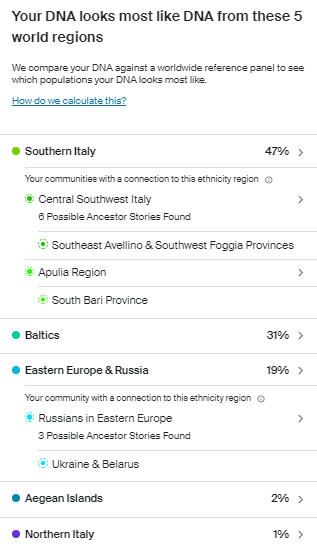






















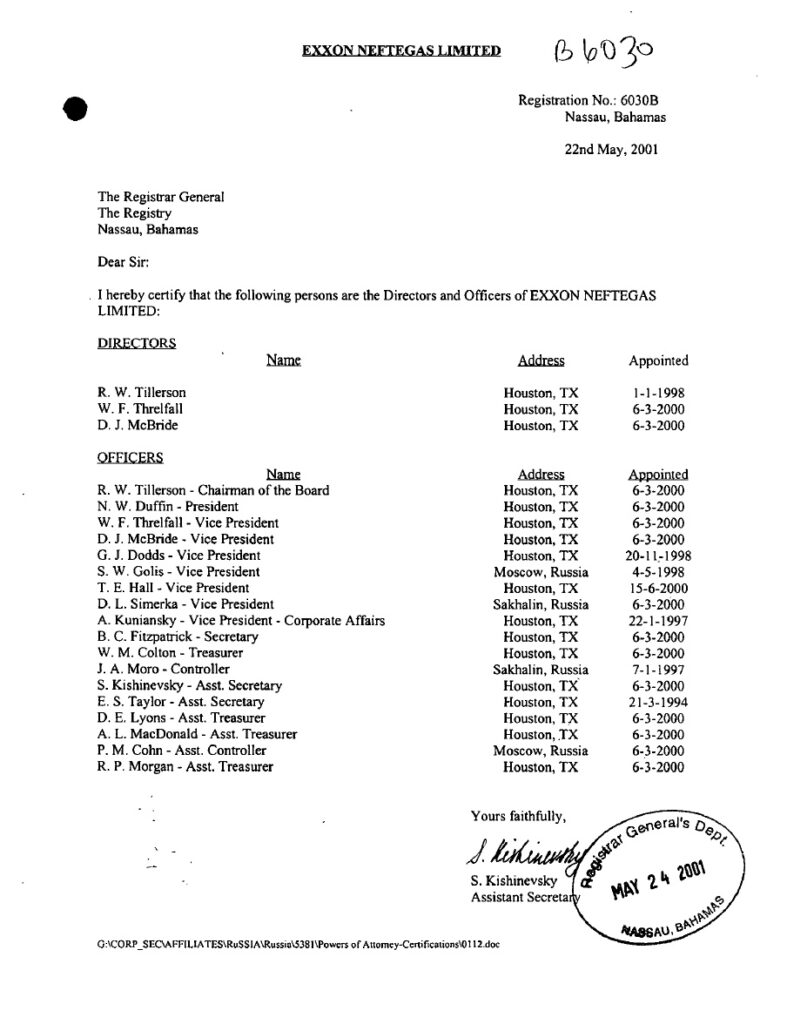










































 Klaus Schwab
Klaus Schwab 



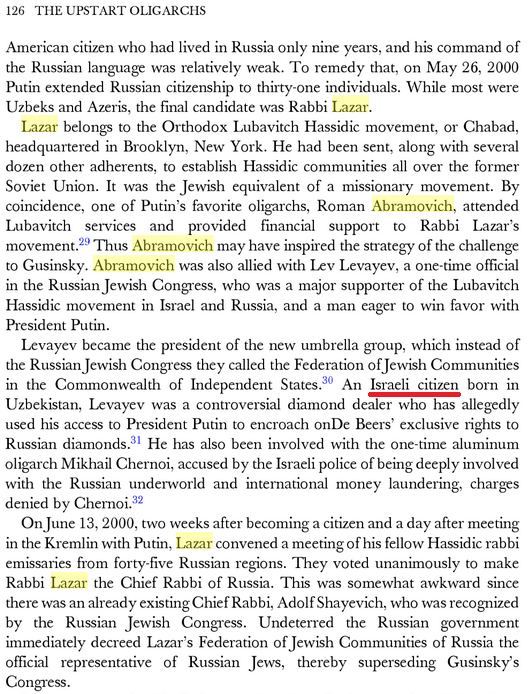
































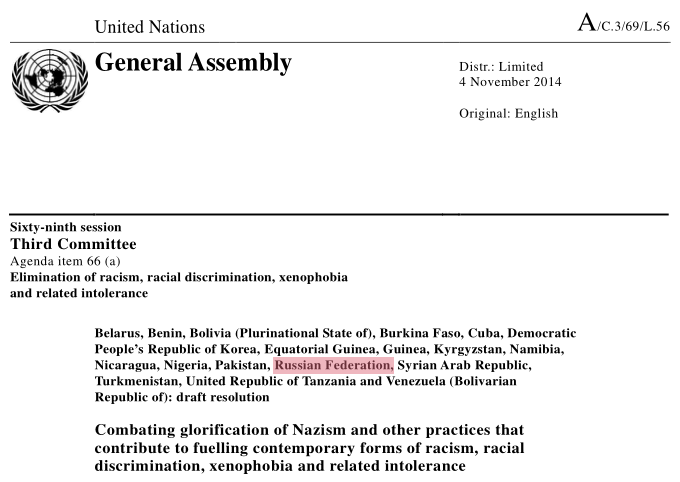
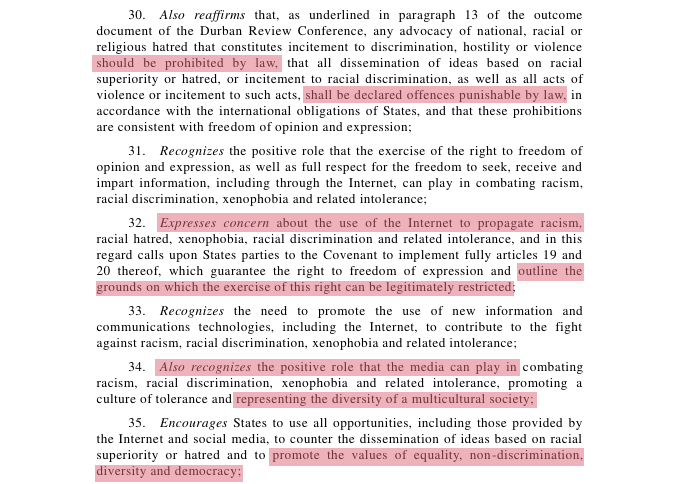















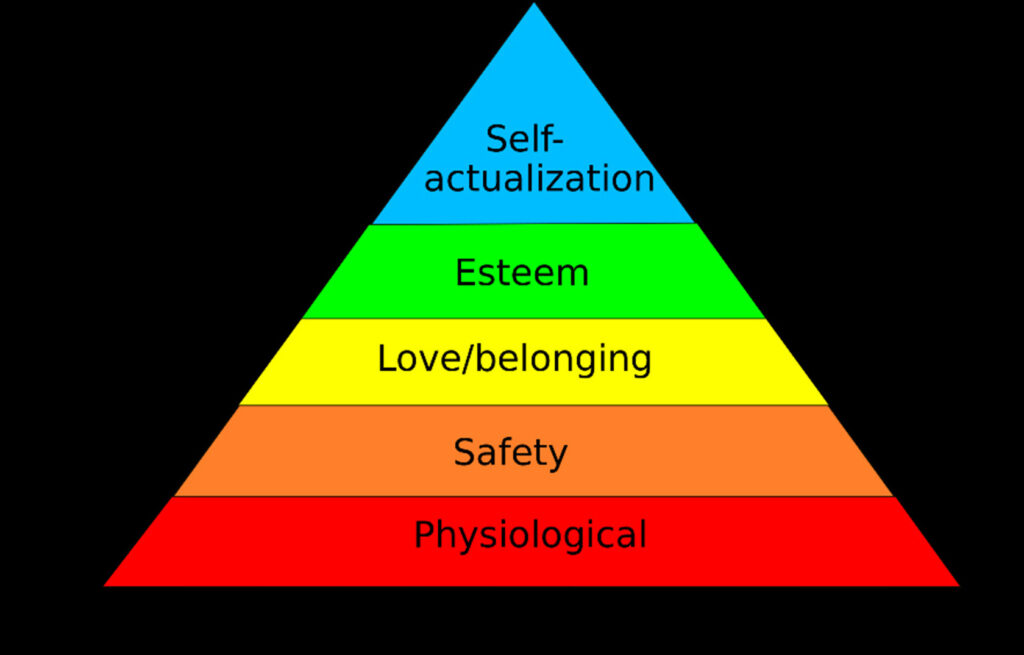








































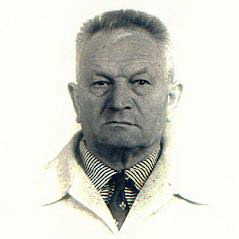



































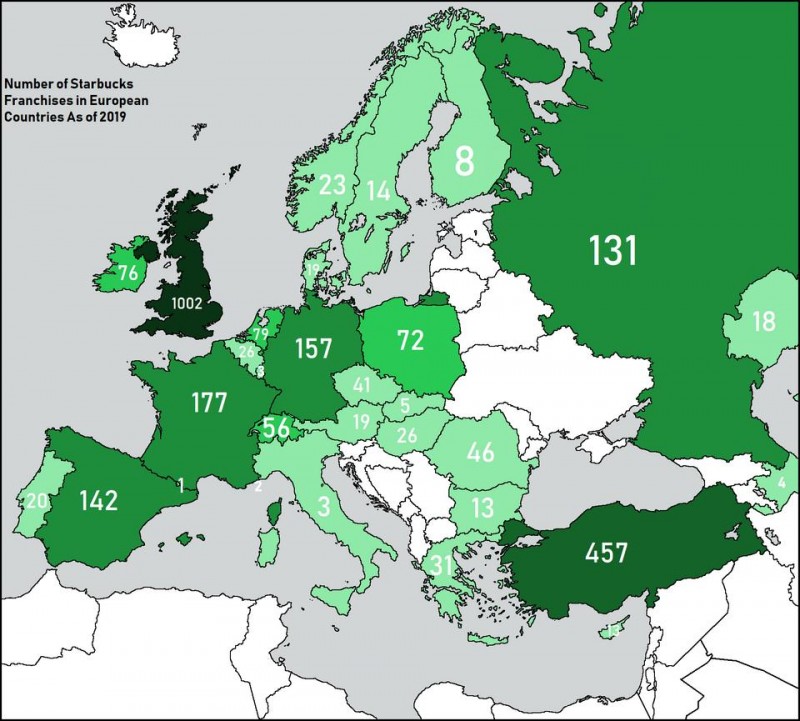







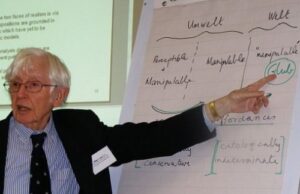






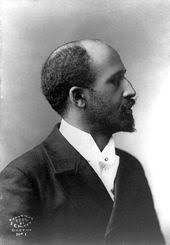




































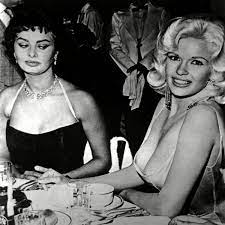





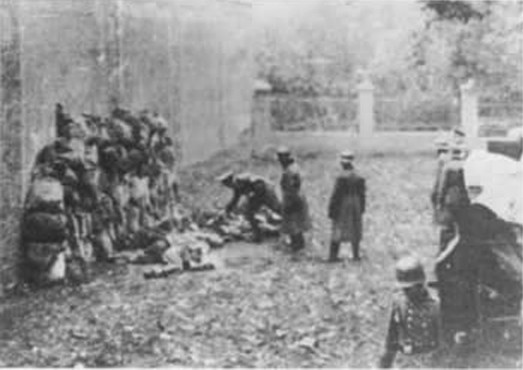


















 Our seniors are fighters who deserve to be respected. These are for example the old soldiers whose honor you have trampled on in recent weeks. It is these thousands of servants of France, signatories of a platform of common sense, soldiers who gave their best years to defend our freedom, obeying your orders, to wage your wars or to implement your budget restrictions. , which you soiled while the people of France supported them.
Our seniors are fighters who deserve to be respected. These are for example the old soldiers whose honor you have trampled on in recent weeks. It is these thousands of servants of France, signatories of a platform of common sense, soldiers who gave their best years to defend our freedom, obeying your orders, to wage your wars or to implement your budget restrictions. , which you soiled while the people of France supported them. These people who fought against all the enemies of France, you have treated them as factious when their only fault is to love their country and to mourn its visible downfall.
These people who fought against all the enemies of France, you have treated them as factious when their only fault is to love their country and to mourn its visible downfall.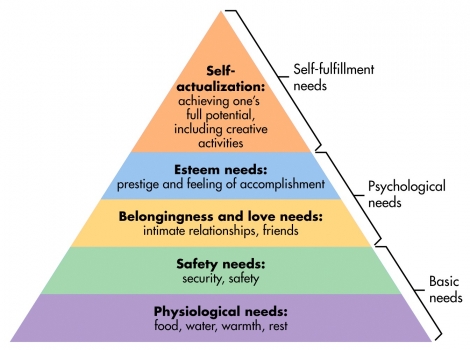

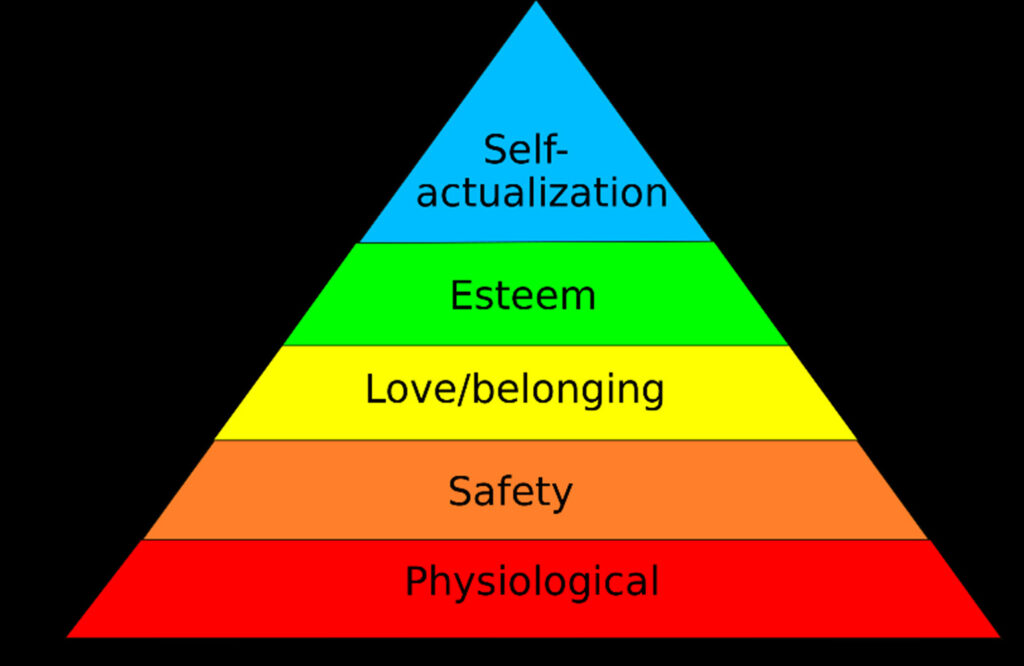


 8 Posted by The Sacred Cows on Thu, 05 Apr 2018 08:48 |
8 Posted by The Sacred Cows on Thu, 05 Apr 2018 08:48 | 














 ..and don’t you just fancy black women in exchange for White women and White way of life – good deal, huh?
..and don’t you just fancy black women in exchange for White women and White way of life – good deal, huh?




































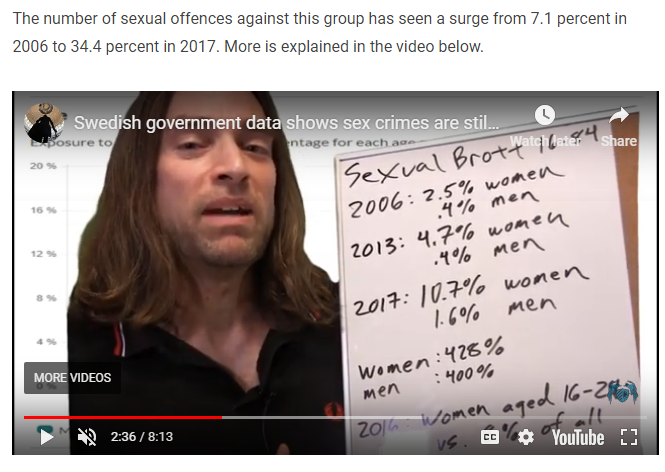






















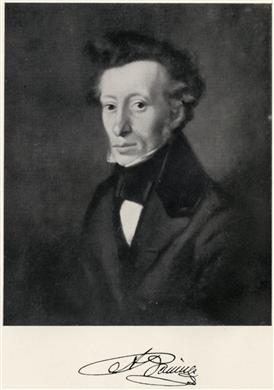
































































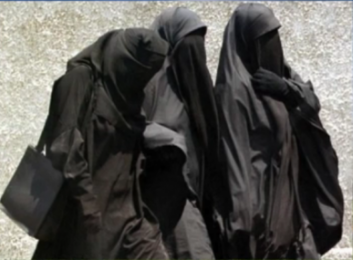


























































































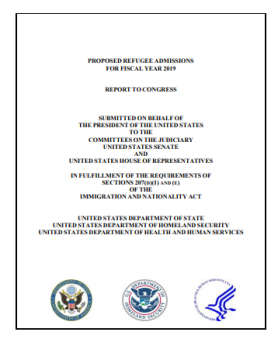
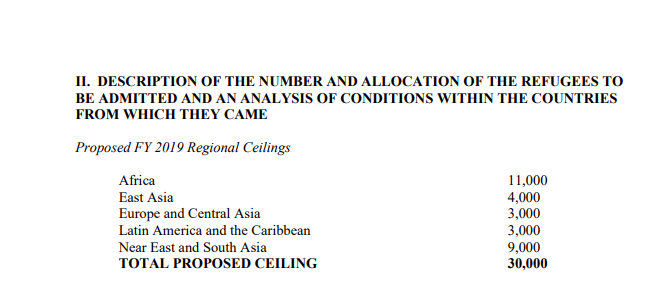






























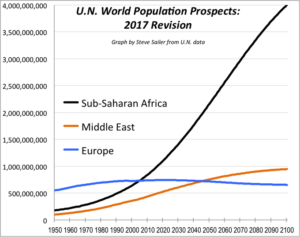






























































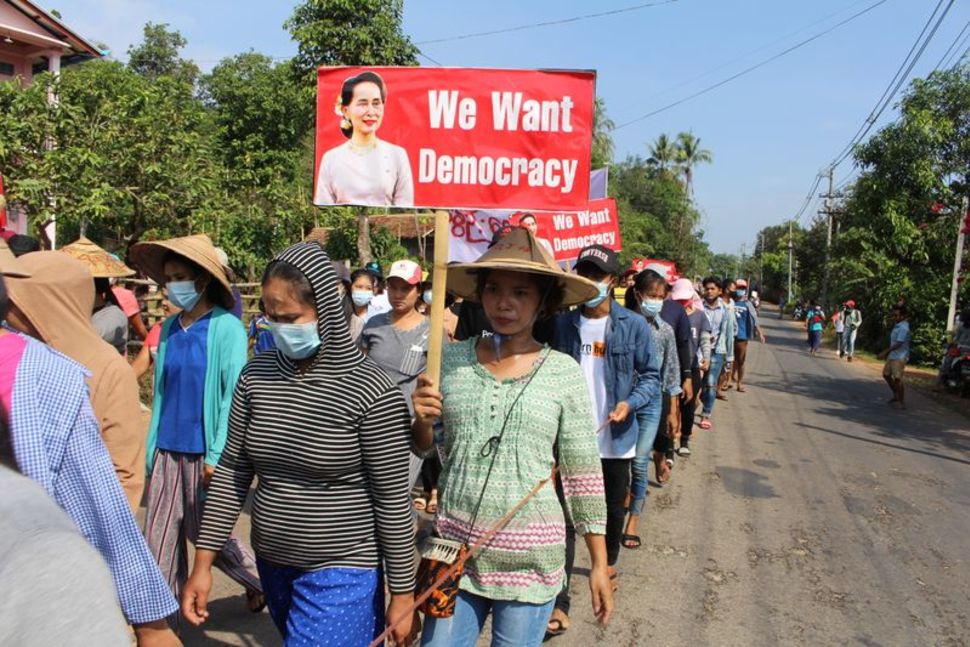



















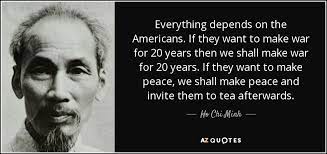
















































































































































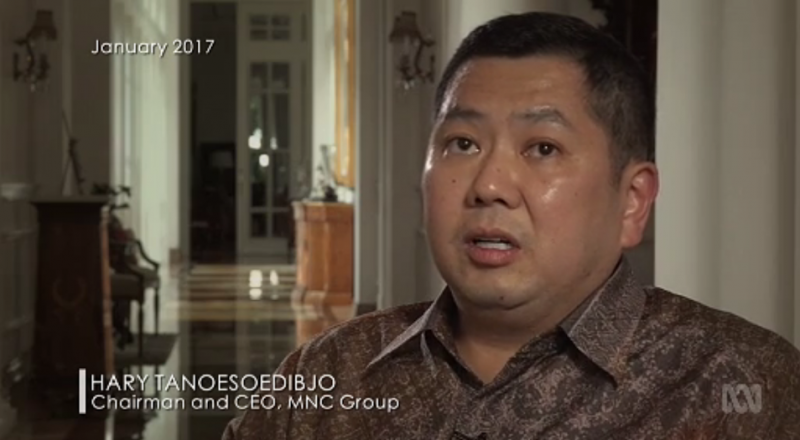
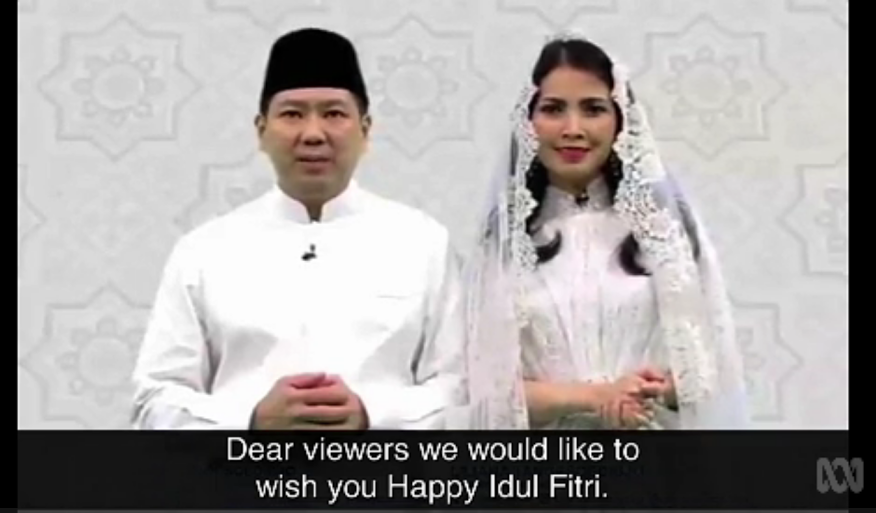
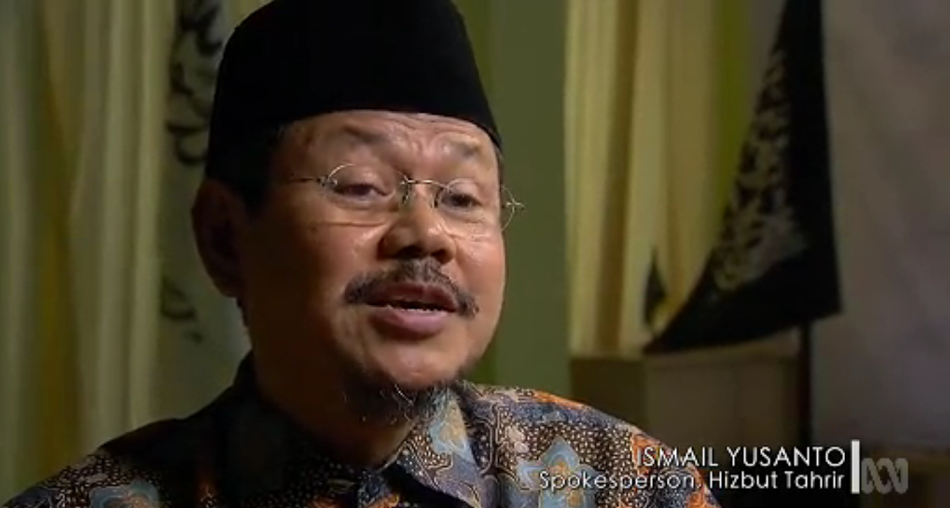










































Myanmar coup: More than 40 children killed by military, rights group says
Protesters with cover their mouths and eyes in a “silent strike” on 24 March 2021, to protest the military shooting dead a sevem-year-old girl.
Protesters held a “silent strike” in Yangon after a seven year old was shot dead in Mandalay.
At least 43 children have been killed by armed forces in Myanmar since February’s military coup, according to rights organisation Save the Children.
The group said the South East Asian country was in a “nightmare situation”, with the youngest known victim just six years old.
A local monitoring group puts the overall death toll at 536.
Meanwhile, ousted leader Aung San Suu Kyi has been charged with violating the country’s official secrets act.
Ms Suu Kyi, along with four of her allies, were charged last week, but the alleged crime – which carries a prison term of up to 14 years – has only now come to light.
The new charge against Ms Suu Kyi is in addition to earlier charges of possessing illegal walkie-talkies, violating Covid-19 restrictions during last year’s election campaign, and publishing information that may “cause fear or alarm”.
The victims of Myanmar’s deadliest day
Myanmar coup: What is happening and why?
The UN’s envoy to Myanmar has warned of the risk of an “imminent bloodbath” as the crackdown against pro-democracy protests in the country intensifies.
The warning follows a flare-up in fighting between the army and ethnic minority militia in border areas.
The UN has become the latest organisation to urge the families of its workers to leave, but has said that some staff will remain in the country.
The unrest in Myanmar began two months ago, when the military seized control of the country after an election which Ms Suu Kyi’s National League for Democracy (NLD) party won by a landslide.
When tens of thousands of people took to the streets nationwide to protest against the coup, the military used water cannon to attempt to disperse them. After a week, the response escalated, and rubber bullets and live ammunition were used.
The deadliest day of the conflict so far came on Saturday, when more than 100 people were killed.
Who is Aung San Suu Kyi?
Lawyers representing Ms Suu Kyi said on Thursday that it was unclear whether their client was aware of how events were unfolding across the country.
“We couldn’t say whether [Ms Suu Kyi] knows about outside situations or not – she may or may not know,” lawyer Min Min Soe told Reuters news agency, adding that the ousted leader “seems to be in good health”.
The violence has sparked an international outcry, with various countries – including the US and UK – announcing sanctions against the coup leaders and military-linked companies.
On Thursday, the UK announced further measures against the Myanmar Economic Corporation (MEC), a conglomerate that has provided funds to the Myanmar military.
“The Myanmar military has sunk to a new low with the wanton killing of innocent people, including children,” Foreign Secretary Dominic Raab said. “The UK’s latest actions target one of the military’s key funding streams and impose a further cost on them for their violations of human rights.”
When Ms Suu Kyi was ousted, military commander-in-chief Min Aung Hlaing took power.
Myanmar coup: How did we get here?
Myanmar profile
Myanmar, also known as Burma, became independent from Britain in 1948. For much of its modern history it has been under military rule
Restrictions began loosening from 2010 onwards, leading to free elections in 2015 and the installation of a government headed by veteran opposition leader Aung San Suu Kyi the following year
In 2017, Myanmar’s army responded to attacks on police by Rohingya militants with a deadly crackdown, driving more than half a million Rohingya Muslims across the border into Bangladesh in what the UN later called a “textbook example of ethnic cleansing”
BBC:
https://www.bbc.com/news/world-asia-56600292
The Rohingya crisis
Since becoming Myanmar’s state counsellor, her leadership has been partly defined by the treatment of the country’s mostly Muslim Rohingya minority.
In 2017 hundreds of thousands of Rohingya fled to neighbouring Bangladesh due to an army crackdown sparked by deadly attacks on police stations in Rakhine state.
Myanmar now faces a lawsuit accusing it of genocide at the International Court of Justice (ICJ), while the International Criminal Court is investigating the country for crimes against humanity.
Ms Suu Kyi’s former international supporters accused her of doing nothing to stop rape, murder and possible genocide by refusing to condemn the still powerful military or acknowledge accounts of atrocities.
A few initially argued that she was a pragmatic politician, trying to govern a multi-ethnic country with a complex history.
But her personal defence of the army’s actions at the ICJ hearing in the Hague was seen as a new turning point for her international reputation.
At home, however, “the Lady”, as Ms Suu Kyi is known, remains wildly popular among the Buddhist majority who hold little sympathy for the Rohingya.